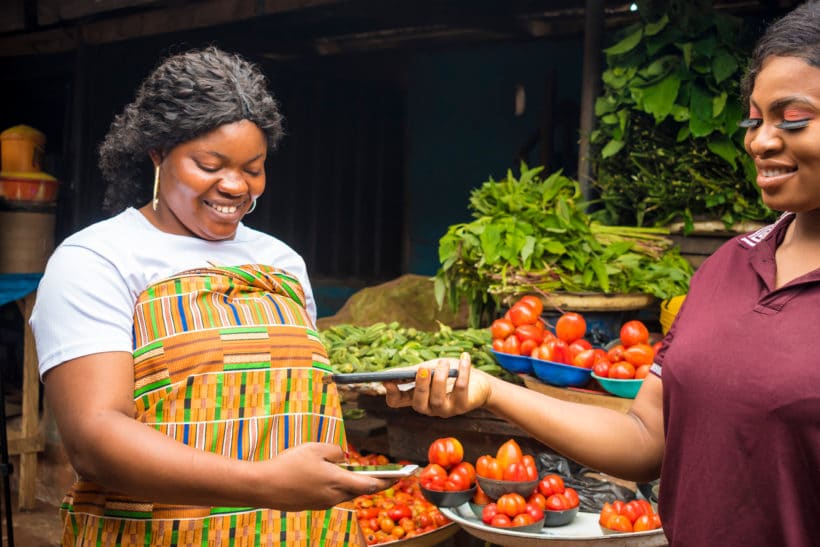
Imagine Salimata working in Nairobi and sending money home to her mother every month, instantly and directly from her mobile money account in Kenya into her mother’s mobile money account in Burkina Faso. Instead of withdrawing cash to give to a remittance company and requiring her mother to travel to an agent to collect it, they both save time and money with lower fees and a better exchange rate.
Many governments across the continent have taken a giant leap forward in making this scenario real. More than half of all countries in Africa already have an instant payment system that allows every person, business, or government entity to transfer money to each other, no matter which bank or financial service provider they use. We believe it is possible to establish such inclusive instant payment systems in every African country by 2030.
But we mustn’t stop there. Governments should seize this momentum to connect these systems to each other to enable continent-wide instant payments by the end of the decade — building a future-ready interoperable African payment systems that can be an exemplar for cross-border payments globally.
This is an ambitious but achievable objective – and vital to enable the African Continental Free Trade Area to grow intra-Africa trade from 18% to about 50% by 2030. There are already instant payment systems in place across 34 African countries. Systems that support instant payments across borders are available today (such as GIMACPAY in the CEMAC region, PAPSS, TCIB in the SADC region, BUNA for the Arab countries) or are being built (in the WAEMU, COMESA, ECOWAS, and EAC regions).
By enabling instant payments from local currency to local currency, these regional instant payment systems have the potential to become early exemplars of the G20 Roadmap for Enhancing Cross-border Payments, demonstrating the high potential to boost growth and trade by making these payments faster, cheaper, and more transparent.
As they become increasingly interconnected, these systems will catalyze the emergence of pan-African companies, driving innovation and competition for the benefit of all consumers. Inclusivity must be at the heart of these efforts, particularly addressing the challenges that women face in accessing financial services. Five African countries still forbid women to open a bank account without a male co-signer. We need more women at the table helping design these systems and the products they make possible, and we need to track data by gender to measure progress. Inclusivity also requires that non-bank financial service providers be connected to these systems. Mobile-money providers are the drivers of financial inclusion across Africa.
As African leaders meet at the African Development Bank’s annual meeting in Kenya later this month, they have an opportunity to harness the momentum to enable all countries in Africa to deliver inclusive growth, jobs, and streamlined access to services and opportunities. Instant payment systems are an integral component of building a safe, inclusive digital public infrastructure (DPI), along with other components like digital ID and data exchange, and they provide the most immediate opportunity to begin implementing interconnected DPI across Africa. This is also a moment to guide the existing and future regional systems towards a continental blueprint so that every single African country is connected to at least one and possibly several of these systems.
Realizing this opportunity starts with mobilizing the political will, technical assistance, and funding to implement inclusive instant payment systems in every country in Africa. Interconnecting these systems and achieving the full benefits requires harmonizing regulations, including “passporting” risk-proportional payment licenses to allow easier expansion of fintech companies across countries.
We urge decision-makers to work toward establishing a unified payment services directive at the African Union. Similar to Europe’s initiative, such a directive could not only address the challenges inherent to dealing with a complex regulatory landscape, but also boost competition, consumer protection, and women’s economic power across the continent.
As more and more countries move to build an instant payment system, they can turn to a powerful network to support their immediate needs for information and funding. Technical assistance is freely available from entities including the World Bank and AfricaNenda who can share lessons and best practices. Countries can freely adapt open-source software, like Mojaloop or Tazama, to build their payment systems rather than start from scratch, lowering costs. Funding is available from initiatives like Co-Develop and other donors, and more resources are being mobilized. We estimate it would cost a few $100 million to set up inclusive, instant payment systems across all of Africa, offering an amazing social impact with a relatively small investment compared to other infrastructure. We recognize this will not be an easy task, but we are optimistic that continent-wide, interconnected inclusive instant payment systems are within reach. And in doing so, the African continent can be a role model for the rest of the world. Salimata will continue to support her mother, only instantly and affordably. Hundreds of millions like her will prosper and build resiliency as well.
Sabine Mensah is deputy CEO of AfricaNenda
Michael Wiegand is Director of Inclusive Financial Systems at the Bill & Melinda Gates Foundation

